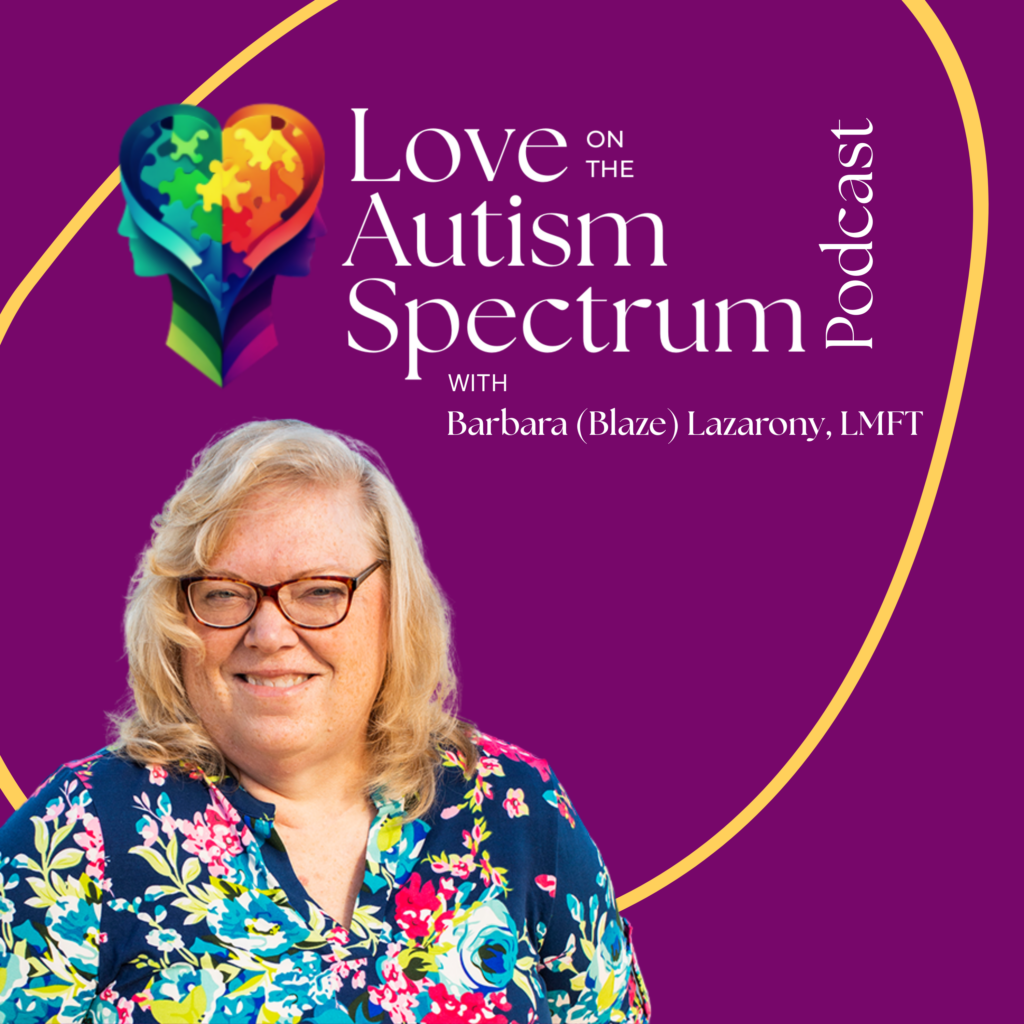Are you struggling to cope with the symptoms of complex post-traumatic stress disorder (C-PTSD)and Neurodiversity? Are you feeling overwhelmed, hopeless, and like no one understands your pain? It’s time to break free from that cycle and find comfort in love and connection.
This blog post will examine overcoming these issues by understanding behaviors, building resilience, loving yourself deeply, and connecting authentically with others. If you’re ready to start a powerful journey toward healing, read on for tips on how therapy and coaching can help you on the path to well-being.
Key Takeaways
- Complex PTSD is a unique condition that continues to be researched even today.
- How to define complex post-traumatic stress disorder.
- Treatment options for PTSD.
Definition Soup: Complex Trauma, Complex PTSD, and PTSD Symptoms
Define Complex Trauma
Complex trauma, also known as developmental trauma or childhood trauma, is a term used to describe multiple and long-lasting traumatic experiences that occur during childhood. This can include childhood abuse, physical, emotional, or sexual abuse, neglect, or exposure to violence in the home.
These experiences can significantly impact an individual’s ability to regulate emotions and cope with stress. Complex trauma, then, is a series of events and processes, and it is not a diagnosis. Experiencing this type of trauma does not mean that an individual will develop Complex PTSD.
What is Complex PTSD?
Complex PTSD (C-PTSD) is a term used to describe the specific symptoms that arise from prolonged and repeated trauma, often experienced in childhood. These symptoms include difficulties, especially with emotional regulation. Complex PTSD can also impact a person’s self-esteem, interpersonal relationships, and even their physical health.
Chronic trauma like C-PTSD can lead to a disrupted sense of self and the world, making it challenging for individuals to feel safe and trust others. People with C-PTSD may also experience dissociation, flashbacks, or other symptoms similar to those of post-traumatic stress disorder (PTSD).
Therefore, Complex Post Traumatic Stress Disorder, or Complex PTSD, is a mental health disorder, even though it is not yet recognized in the Diagnostic and Statistical Manual of Mental Disorders (DSM-5).
Instead, individuals who experience C-PTSD may be diagnosed with PTSD or another mental health disorder. However, research continues to show that Complex PTSD has unique symptoms and requires specialized treatment approaches.
How do You Define PTSD?
Finally, cPTSD, depression, anxiety, and other mental health issues can often stem from complex trauma. Posttraumatic stress disorder (PTSD), on the other hand, refers to the symptoms that occur after a single traumatic event or series of events. While there may be some overlap in symptoms between C-PTSD and PTSD, C-PTSD is more complex as it involves multiple traumas over an extended period.
Causes and Risk Factors
Complex post-traumatic stress disorder is a condition that develops in response to prolonged and repeated exposure to traumatic events. Unlike PTSD, which can result from a single traumatic event, CPTSD often stems from ongoing trauma, particularly during one’s formative years.
Some common causes of CPTSD include:
- Childhood trauma: Experiences such as physical or sexual abuse, emotional neglect, or witnessing domestic violence can have long-lasting effects.
- Domestic violence or intimate partner violence: Continuous exposure to violence in a relationship can lead to CPTSD.
- Human trafficking or slavery: The extreme and prolonged trauma experienced by victims can result in severe psychological harm.
- War or combat: Soldiers and civilians exposed to the horrors of war may develop CPTSD.
- Natural disasters: Repeated exposure to life-threatening situations, such as hurricanes or earthquakes, can contribute to CPTSD.
- Refugee or asylum seeker experiences: The ongoing stress and trauma of fleeing one’s home country and facing uncertain futures can lead to CPTSD.
Risk factors for developing CPTSD include:
- A history of trauma or abuse: Previous traumatic experiences can increase vulnerability.
- A family history of mental health conditions: Genetics can affect susceptibility.
- A lack of social support or resources: Isolation and lack of support can exacerbate the effects of trauma.
- A history of substance abuse or addiction: Substance abuse can both result from and contribute to the development of CPTSD.
- A history of mental health conditions: Pre-existing conditions like depression or anxiety can increase the risk.
It’s important to note that anyone can develop CPTSD, regardless of background or circumstances. However, certain groups may be more at risk due to their increased exposure to traumatic events.
Complex Post-traumatic Stress Disorder (CPTSD) vs. PTSD
While both CPTSD and PTSD are conditions that develop in response to traumatic events, there are some key differences between the two.
PTSD typically arises from a single traumatic event, such as a car accident or a natural disaster. The symptoms of PTSD can be severe and debilitating, but they are often focused on the specific traumatic event. These symptoms may include flashbacks, nightmares, and severe anxiety related to the event.
CPTSD, on the other hand, is caused by prolonged and repeated exposure to traumatic events. This can lead to more complex and severe symptoms, including emotional dysregulation, negative self-concept, and interpersonal difficulties. Individuals with CPTSD may struggle with feelings of worthlessness, persistent sadness, and difficulty maintaining relationships.
Some key differences between CPTSD and PTSD include:
- The duration and frequency of the traumatic events: CPTSD results from ongoing trauma, while PTSD typically follows a single event.
- The severity and complexity of the symptoms: CPTSD involves more pervasive and chronic symptoms that affect multiple areas of life.
- The impact on daily life and relationships: CPTSD can lead to significant challenges in personal and professional relationships and overall functioning.
It’s worth noting that CPTSD is not currently recognized as a distinct condition in the Diagnostic and Statistical Manual of Mental Disorders (DSM-5). However, the World Health Organization (WHO) recognizes it and includes it in the International Classification of Diseases (ICD-11).
Understanding Neurodiversity
Neurodiversity is the natural variation in the human population’s neurological (brain) structure and function. Individuals have different brain wiring and processing abilities, leading to unique ways of thinking and experiencing the world.
Neurodiversity includes conditions such as autism spectrum disorder, dyslexia, attention deficit hyperactivity disorder (ADHD), and other neurodevelopmental disorders like dyslexia and dyscalculia and Obsessive-compulsive disorder (OCD.) These conditions are considered to be due more often to genetics, as neurodiversity runs in multiple family generations.
It is essential to recognize that neurodiversity is not a disorder or illness but a natural variation in human neurology. Each individual’s brain works differently, and this diversity should be celebrated rather than stigmatized.
Neurodiverse traits are not disorders or deficits; they represent different ways of thinking, processing information, and experiencing the world. However, individuals with neurodiverse traits often face challenges in society due to a lack of understanding and especially accommodations.
The Impact of Neurodiversity on Complex Post-traumatic Stress Disorder
Individuals who identify as neurodivergent may have unique ways of processing information and interacting with the world around them.
For individuals with C-PTSD, their neuro neurodiversity plays a significant role in how they cope with and manage their symptoms. For example, someone with ADHD may struggle with maintaining focus during therapy sessions or adhering to a consistent treatment plan. Similarly, someone with ASD may require different methods of communication and support in therapy compared to someone without ASD.
Mental health professionals must know an individual’s neurodiversity when treating C-PTSD. This can help create a more personalized and effective treatment plan that considers the individual’s unique needs and strengths. C-PSTD, along with Traumatic Brain Injuries (TBI), are often referred to as environmental forms of neurodiversity. This means that they are caused by external factors, such as trauma or injury, rather than being a part of someone’s neurology from birth.
Understanding and addressing the intersectionality of C-PTSD and neurodiversity is crucial in providing high-quality care. A person with C-PTSD may also have ADHD, ASD, or another form of neurodiversity. In these cases, their experiences and symptoms may be amplified or affected differently than someone without these additional diagnoses.
Moreover, research has shown that individuals with C-PTSD have higher rates of comorbid mental health conditions compared to the general population. This includes depression, anxiety disorders, substance abuse disorders, and dissociative disorders. Mental health professionals need to have a thorough understanding of C-PTSD and its potential intersection with neurodiversity to provide effective treatment.
When treating C-PTSD in individuals with neurodiversity, it is crucial to take an individualized approach. This means acknowledging their unique experiences and challenges, as well as any additional diagnoses they may have. Some traditional therapies may not be as effective for individuals with neurodiversity, and adjustments may need to be made to accommodate their needs. This is why having a neurodiverse-affirming therapist on your mental health team is critical.
Is Recovery Possible from Complex PTSD?
Recovery from complex PTSD is possible with the proper support and resources. Therapy, medication, support groups, self-care practices, and other forms of treatment can all aid in managing symptoms and promoting healing. Remember that you are not alone in your journey toward recovery, and you deserve to live a fulfilling and happy life despite your past traumas. Always prioritize your mental health and seek help when needed.
Individuals need to seek professional help to diagnose and address these symptoms adequately. With proper treatment and support, individuals living with C-PTSD can learn coping strategies and develop healthier ways to manage their symptoms. It is essential to remember that healing from C-PTSD is a journey and may take time, but with determination and support, recovery is possible.
It can be empowering for individuals to educate themselves about C-PTSD and its symptoms, as well as to seek support from others who understand their experiences. Building a solid support system, practicing self-care, and engaging in therapy can all aid in the recovery process.
Understanding Behaviors: The Importance of Self-Compassion
In addition to the various symptoms and challenges that individuals with C-PTSD may experience, it is crucial to understand how trauma can impact one’s behavior. Behaviors such as self-harm, substance abuse, isolation, and avoidance may arise as coping mechanisms for dealing with the intense emotional distress caused by C-PTSD.
Rather than judging these behaviors or punishing oneself for engaging in them, it is crucial to cultivate self-compassion. Self-compassion involves treating oneself with kindness and understanding rather than harsh criticism.
Practicing self-compassion allows individuals to acknowledge their struggles without judgment and offer support and care during difficult times. It can also help individuals recognize their triggers and develop healthier coping methods.
Furthermore, self-compassion can also help build resilience and promote healing from C-PTSD. By learning to be more compassionate toward ourselves, we can develop a stronger sense of self-worth and inner strength.
Moving Forward: Taking Small Steps Towards Healing
Healing from C-PTSD is not easy, but taking small daily steps can significantly impact you. Practicing self-care, connecting with trusted friends or family members, engaging in therapy or support groups, and finding healthy coping mechanisms are all essential steps toward recovery.
It is also important to remember that progress may not always be linear. Setbacks may occur along the way, but that does not mean one has failed. Each individual’s journey toward healing will look different, and it is crucial to honor one’s own pace and progress.
Above all, remember that healing is possible. With dedication, self-compassion, and support from others, you can overcome the impact of C-PTSD on your life.
Your trauma does not define you; you are a resilient individual capable of finding strength and healing within yourself. Keep moving forward, one small step at a time.
People raised on love see things differently than those raised on survival.
– Joy Marino
How Love and Connection Can Help Heal Complex PTSD and Neurodiversity
Love and connection are powerful tools in the healing journey of complex post-traumatic stress disorder (C-PTSD) and embracing neurodiversity. While these conditions can often make individuals feel isolated, misunderstood, and disconnected from others, it is essential to remember that we are all wired for love and connection.
Here are some ways that love and connection can aid in the healing process:
- Create a support system: Building a solid support system of friends, family, or professionals who understand and accept you for who you are can provide a sense of safety and belonging. These relationships can offer comfort, validation, and understanding during difficult times.
- Join a support group. Connecting with others who are experiencing similar experiences can be incredibly healing. Support groups provide a space to share thoughts and feelings, receive support and advice, and build meaningful connections.
- Foster trust: Love and connection involve vulnerability, which can be challenging for those with C-PTSD or neurodivergence. However, by building confidence in a safe and nurturing relationship, individuals can learn to let their guard down and open themselves up to love and connection.
- Encourage self-worth: Feeling loved and accepted for who you are can boost self-esteem and promote feelings of self-worth. This is especially important for those who have experienced trauma or have struggled with accepting their neurodiversity.
- Promote healing through oxytocin release: Love and connection trigger the release of oxytocin, known as the “love hormone. ” This hormone has been linked to reducing stress, lowering anxiety, and promoting overall well-being.
- Create a sense of purpose: When one feels connected to others, they may also feel a sense of purpose and belonging. This can give individuals the motivation and drive to continue on their healing journey, knowing that they have a support system and are part of something larger than themselves.
- Encourage vulnerability and healthy communication: In a safe and loving environment, individuals may feel more comfortable opening up about their feelings, thoughts, and experiences. This can lead to productive conversations and the opportunity for growth and healing.
- Provide a sense of understanding and acceptance: Being part of a community that understands and accepts one’s neurodiversity can be incredibly empowering. It allows individuals to embrace themselves without fear of judgment or rejection. This sense of understanding and acceptance can also extend beyond the online community, creating more inclusive and compassionate communities in the real world.
- Offer connections with others on similar journeys: Through online platforms like www.loveontheautismspectrum.com, individuals can connect with others who share similar experiences. These connections can provide a sense of belonging and support and the opportunity to learn from others who have gone through similar struggles.
- Encourage self-discovery and self-care: Being part of an online community focused on neurodiversity can also provide individuals with the space to explore their thoughts, feelings, and needs. It can be a safe environment to discuss challenges, share coping strategies, and prioritize self-care. This reflection and introspection can lead to personal growth and improved mental well-being.
With love, understanding, and acceptance, individuals with C-PTSD and neurodiversity have strength in their unique experiences and embrace their true selves.
Our brains are wired for connection, but trauma rewires them for protection. That’s why healthy relationships are difficult for wounded people. –Ryan North
Let’s work together to build a more inclusive and compassionate world. Let us spread love, promote connection, and embrace neurodiversity. We all deserve love and belonging.
Our differences make us unique, but our shared need for love and connection unites us all. Let’s break down barriers and create a world where love is celebrated, differences are embraced, and everyone feels seen, heard, and valued.
Seeking Professional Help for Complex PTSD
If you suspect that you may have Complex PTSD or are struggling with its symptoms, it’s essential to seek professional help from a therapist or counselor who specializes in trauma. I am one of those people; I have an Advanced Certification in Trauma healing. I, and therapists like me, can provide you with a proper diagnosis and develop a personalized treatment plan for your specific needs.
Finding a therapist who makes you feel safe and comfortable to share your experiences is also essential. Remember, recovery from Complex PTSD is a journey, and it’s necessary to have a robust support system in place.
Additionally, seeking professional help benefits the individual and their loved ones, and their symptoms may be impacted. By addressing and managing Complex PTSD, individuals can improve their relationships and overall quality of life.
Remember that seeking help for mental health concerns is a sign of strength, not weakness. It takes courage to confront trauma and work towards healing. So don’t hesitate to seek professional support – you deserve it.
Diagnosing Complex PTSD
If you suspect you may have Complex PTSD, it’s essential to seek professional help for a proper diagnosis. This will help guide your treatment plan and give you the support and resources you need. I am a neurodiverse therapist and coach who has earned an Advanced Certificate in Trauma Healing; please feel free to reach out to schedule a session with me to learn if we could be a good fit in working together.
Some common signs and symptoms of Complex PTSD include difficulty regulating emotions, negative self-perception, difficulty trusting others, feelings of shame or guilt, and dissociation. It’s important to note that everyone experiences trauma differently and may exhibit varying symptoms.
Diagnosing Complex PTSD can be complex in itself, as it is not yet officially recognized as a distinct disorder in the Diagnostic and Statistical Manual of Mental Disorders (DSM-5). According to the World Health Organization (WHO), complex PTSD is a severe mental health condition that can significantly impact an individual’s daily life and functioning.
The organization notes that individuals with C-PTSD may also experience difficulties regulating their emotions, maintaining relationships, and managing their day-to-day responsibilities. This highlights the importance of seeking professional help and support when dealing with this condition.
In addition, the WHO emphasizes that C-PTSD can affect anyone who has experienced prolonged or repeated interpersonal trauma, regardless of age, gender, or cultural background. It’s vital for society to recognize the prevalence and impact of C-PTSD and for individuals to receive proper support and understanding from others.
However, many mental health professionals acknowledge the existence of C-PTSD and use the criteria for PTSD with an added emphasis on prolonged and repeated trauma.
As more research is conducted on complex PTSD, society must continue advocating for better recognition, understanding, and treatment of this condition. With a supportive community and access to resources, those with C-PTSD can find hope in their journey toward healing and recovery.
Impact on Marginalized Communities
CPTSD can have a disproportionate impact on marginalized communities, including communities of color, LGBTQ+ individuals, and individuals with disabilities. These communities may be more likely to experience traumatic events due to systemic inequality and discrimination.
For example, communities of color may be more likely to experience police brutality, racial profiling, and other forms of systemic racism. LGBTQ+ individuals may face hate crimes, discrimination, and rejection from family and society. Individuals with disabilities may encounter abuse, neglect, and barriers to accessing necessary resources.
Additionally, marginalized communities may face barriers to accessing mental health care and treatment for CPTSD. This can include a lack of access to healthcare providers, a lack of cultural competency among healthcare providers, and a lack of resources and support. These barriers can exacerbate the effects of CPTSD and make it more challenging to seek and receive help.
It’s essential to recognize the impact of systemic inequality and discrimination on marginalized communities and to provide culturally sensitive and trauma-informed care to individuals with CPTSD.
Some ways to address the effects of CPTSD on marginalized communities include:
- Providing culturally sensitive and trauma-informed care means ensuring that mental health professionals are trained to understand and respect their client’s cultural backgrounds and experiences.
- Increasing access to mental health care and resources: Working to remove barriers to care and provide resources to those in need.
- Addressing systemic inequality and discrimination: Advocating for policies and practices that promote equality and reduce discrimination.
- Providing support and resources for marginalized communities: Creating safe spaces and support networks for individuals to share their experiences and receive help.
By recognizing the impact of CPTSD on marginalized communities and providing culturally sensitive and trauma-informed care, we can work towards healing and recovery for individuals affected by this condition.
Treatment Options for C-PTSD
While there is no one-size-fits-all approach to treating C-PTSD, several evidence-based treatment options have shown promising results. It is essential to seek professional help from therapists who treat PTSD, highlighting various therapeutic interventions and guidelines recommended by the American Psychological Association. These include psychotherapy, medication, and self-care practices.
Children don’t get traumatized because they are hurt. They get traumatized because they are alone with the hurt. –Dr. Gabor Mate
Psychotherapy, also known as talk therapy, involves working with a mental health professional to address the symptoms of C-PTSD. Therapy can help individuals process and make sense of their traumatic experiences, learn coping skills for managing symptoms, and develop healthier ways of thinking.
Some forms of therapy commonly used for C-PTSD include trauma-focused treatment, cognitive behavioral therapy (CBT), eye movement desensitization and reprocessing (EMDR), dialectical behavior therapy (DBT), and Brainspotting.
Medication can also be beneficial in managing some of the symptoms of C-PTSD, such as depression, anxiety, and sleep disturbances. However, it is essential to note that medication alone is not considered a complete treatment for C-PTSD and should be used in conjunction with therapy.
Self-care practices, such as exercise, mindfulness meditation, journaling, and spending time in nature, can also be crucial in the recovery process from C-PTSD. These practices can help individuals cope with extreme stress and promote relaxation and well-being.
It’s essential for those struggling with C-PTSD to work closely with a mental health professional to determine the best course of treatment for their specific needs. Recovery from complex PTSD is possible with proper support and commitment to healing.
With the right tools and resources, individuals can learn to manage their symptoms and lead fulfilling lives. Remember, seeking help is a sign of strength, and you deserve to live a life free from the effects of traumatic events, both past and present.
Don’t be afraid to seek support from mental health professionals and take the necessary steps towards healing. You are not alone in this journey; traumatic events are not something that you need to get over on your own.
Keep moving forward with determination and hope, knowing that recovery is possible from post-traumatic stress disorder; you have the power to overcome C-PTSD and live a fulfilling life.
Summary
In summary, let’s continue to spread love, promote connection, and embrace neurodiversity and Neurodiversitylexities of a traumatic event that includes sexual and physical abuse and severe psychological harm that leads to an experience of chronic trauma for adult survivors. Let’s break down barriers and create a world where everyone feels seen, heard, and valued. With love, understanding, and acceptance, we can overcome any challenge. So, let’s keep striving toward a world where love triumphs over fear and everyone is empowered to reach their full potential.
Remember that you are not alone. Together, we can make a positive impact on each other’s lives. Keep spreading love, and never forget that you are worthy of love and belonging just as you are.
Let’s build a more inclusive society where differences are celebrated, and individuals are embraced for who they are. In the end, it is our essential connections that truly matter.
Frequently Asked Questions
What is an example of complex PTSD trauma?
An example of complex PTSD trauma could be a person who has experienced ongoing emotional and physical abuse from a parent or caregiver during their childhood. This type of trauma can have long-lasting effects on an individual’s mental and emotional well-being, leading to symptoms such as low self-esteem, difficulty forming healthy relationships, and struggles with regulating emotions.
Is C-PTSD a severe mental illness?
Yes, C-PTSD is considered a severe mental illness as it can significantly impact an individual’s daily functioning and quality of life. It is vital to seek professional help and support to heal from C-PTSD. With proper treatment and support, individuals with C-PTSD can find ways to cope and improve their overall well-being.
How can individuals with complex PTSD cope and improve their well-being?
There are many ways that individuals with C-PTSD can cope and improve their overall well-being. Seeking professional treatment from therapists or mental health practitioners who specialize in complex trauma is often the most effective way to manage symptoms and work toward healing.
What happens when someone with C-PTSD is triggered?
When someone with complex PTSD, assisting the individual, experiences intense emotional and physical reactions that are similar to those experienced during the traumatic event, this can include flashbacks, nightmares, dissociation, hyperarousal, and avoidance behaviors.
Ultimately, with proper management of triggers and symptoms, individuals with C-PTSD can learn to cope and thrive in their daily lives. It’s essential to have patience and compassion for oneself during this recovery journey.
So remember, never give up hope – healing is possible. You deserve peace, happiness, and a fulfilling life free from the chains of past trauma.









